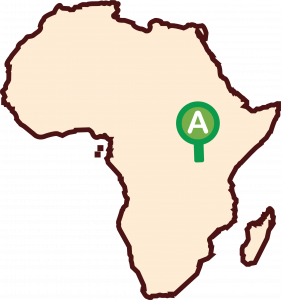Project Leads
The Problem
Genomic research raises a unique set of ethical, legal, and social challenges for further exploration to ensure that there is adequate protection of research participants, communities, and researchers. In Africa, challenges arise in determining the most appropriate approach for obtaining informed consent given the vulnerabilities arising from the complexity of genomic research; the high background poverty; low literacy levels; and linguistic/cultural differences between different populations in Africa. There are also concerns about research participants’ ability to understand the concepts of genomic research, storage and future use of biological samples, and the potential risk of stigma or exploitation of study communities.
Project Strategy
- Explore culturally appropriate strategies of enhancing understanding during the consent and assent process in genetic/genomics research.
- Identify the best practices for improving understanding of the informed consent process leading to enhanced protection of the rights and welfare of participants.
- Employ mixed methods including surveys, direct observation of informed consent session, content analysis of consent documents, focus group discussions (FGDs), and in-depth interviews with selected stakeholders.
Outcomes & Impact
- Assessment of the quality of 243 informed consent documents and 77 material transfer agreements was done.
- A survey was conducted involving 187 genomic researchers, in-depth interviews with 15 researchers and FGDs with 16 nurses involved in obtaining informed consent for genetic or genomic research. This aims to explore their knowledge, perceptions, and experience on ethical, legal, and social implication (ELSI) of research involving genomics and the collection, storage, and future use of human biological materials.
- Assessment of understanding of consent was done for 370 participants of three on-going genomic studies. In addition, 10 FGDs were conducted with 80 parents, minors and young adults. Researchers aim to identify ELSI related knowledge, experiences, and perceptions of research participants including caregivers’ involvement in the informed consent process.
- Two surveys involving 122 parents and 100 adolescents were conducted. In addition, 10 FGDs were conducted involving 42 parents and 42 adolescents participating in the CafGEN study. Researchers aim to explore parental and adolescent attitudes, preferences, and experiences in the return of individual genetic/genomic research results.
- In-depth interviews were conducted with 15 researchers conducting paediatric/adolescent genomic research. The aim is to explore experiences and perspectives of genomic researchers on the return of individual results in research involving minors as research participants.
- Three papers have been published so far on informed consent for genetics/genomic research and return of individual genomic research results to participants.
Project Sites
Additional Resources
September 28, 2020
Sub Saharan Africa (SSA), which bears 24% of the world’s burden of disease, is also home to: the highest human genetic diversity, vast array of environments, and a diversity of cultural practices. Whereas most of this disease burden has till recently been attributed to various infectious diseases like HIV/AIDS, the onset of the new and concurrent non communicable diseases epidemic is creating unique opportunities
September 25, 2020
HI-GENES Africa Project Summary/Abstract Despite a large number of identified genes, only GJB2 and GJB6 have been systematically studied in sub-Saharan Africans, for which prevalence of NSHI-causal variants is close to zero and we estimate known NSHI genes only explain ~4.1% of autosomal recessive (AR) NSHI in African-Americans.
September 24, 2020
IFGeneRA OVERALL Component The Individual Findings in Genetics Research in Africa (IFGeneRA) H3Africa ELSI Collaborative Centre aims to progressively build an evidence base that forms the basis for context- and country specific development of policies relating to the return of individual genetic research results for African genomic research,
September 22, 2020
Hereditary neurological disorders are very disabling diseases that are under-studied in Africa. Our first aim is to clinically characterize these disorders in the Malian population in order to establish a comprehensive clinical description of the diseases in this region. Our second aim is to identify gene mutations related to neurological diseases, and to explore their effects in cell culture models to further our understanding of their function and interactions and our knowledge of
September 22, 2020
Developmental disorders are severe, chronic disabilities that are systematically increasing in prevalence in low-and middle-income countries. Due to the high burden of infectious disease in many African countries, active research into rare disorders such as DD has been neglected. The genetic aetiology of DD is complex and therefore traditional diagnostic tests have a low success yield.
September 21, 2020
The Community Engagement in Biobanking and Genomics (CEBioGen) collaborative centre aims to build a systematic evidence base for effective community engagement for genomics and biobanking in Africa from the recruitment stage to feedback of findings.
September 16, 2020
The completion of the Human Genome Project and the advances in Bioinformatics technology provide great opportunity for better understanding the extensive genetic and microbiota diversity in African populations and a deeper understanding of susceptibility and
September 16, 2020
West African Sustainable Leadership and Innovation Training in Bioinformatics Research (WASLITBRe) Training Program Summary. It is evidently clear that NIH has audaciously stimulated and is supporting research in human health and heredity in Africa, which is further, enhanced with informatics
September 14, 2020
Center for Research on the Respiratory Microbiota of African Children (ReMAC): Abstract The microbiota (community of microorganisms) of the upper airways plays a key role in the development of lower respiratory tract infection (LRTI) in children. Most of the important bacterial LRTI pathogens also colonize the







